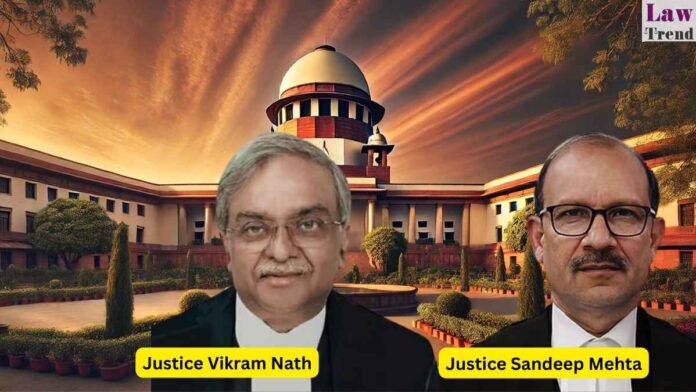The Supreme Court of India has acquitted a man sentenced to life imprisonment for murder, holding that a conviction cannot be sustained solely on the basis of a “doubtful” dying declaration that suffers from numerous “crucial infirmities and loopholes.” A bench of Justice Vikram Nath and Justice Sandeep Mehta, in the case of Tarun Sharma
To Read More Please Subscribe to VIP Membership for Unlimited Access to All the Articles, Download Available Copies of Judgments/Order, Acess to Central/State Bare Acts, Advertisement Free Content, Access to More than 4000 Legal Drafts( Readymade Editable Formats of Suits, Petitions, Writs, Legal Notices, Divorce Petitions, 138 Notices, Bail Applications etc.) in Hindi and English.




